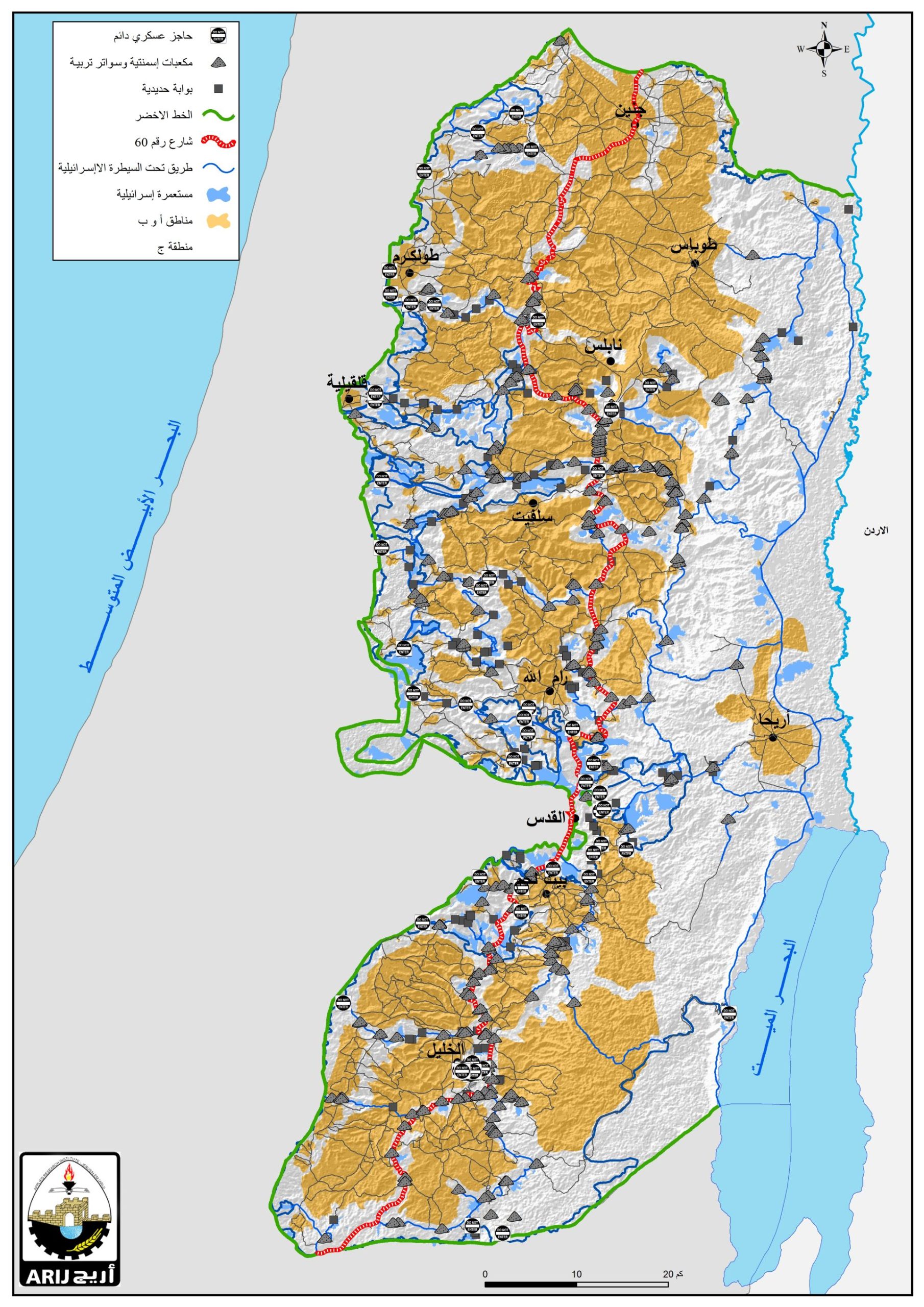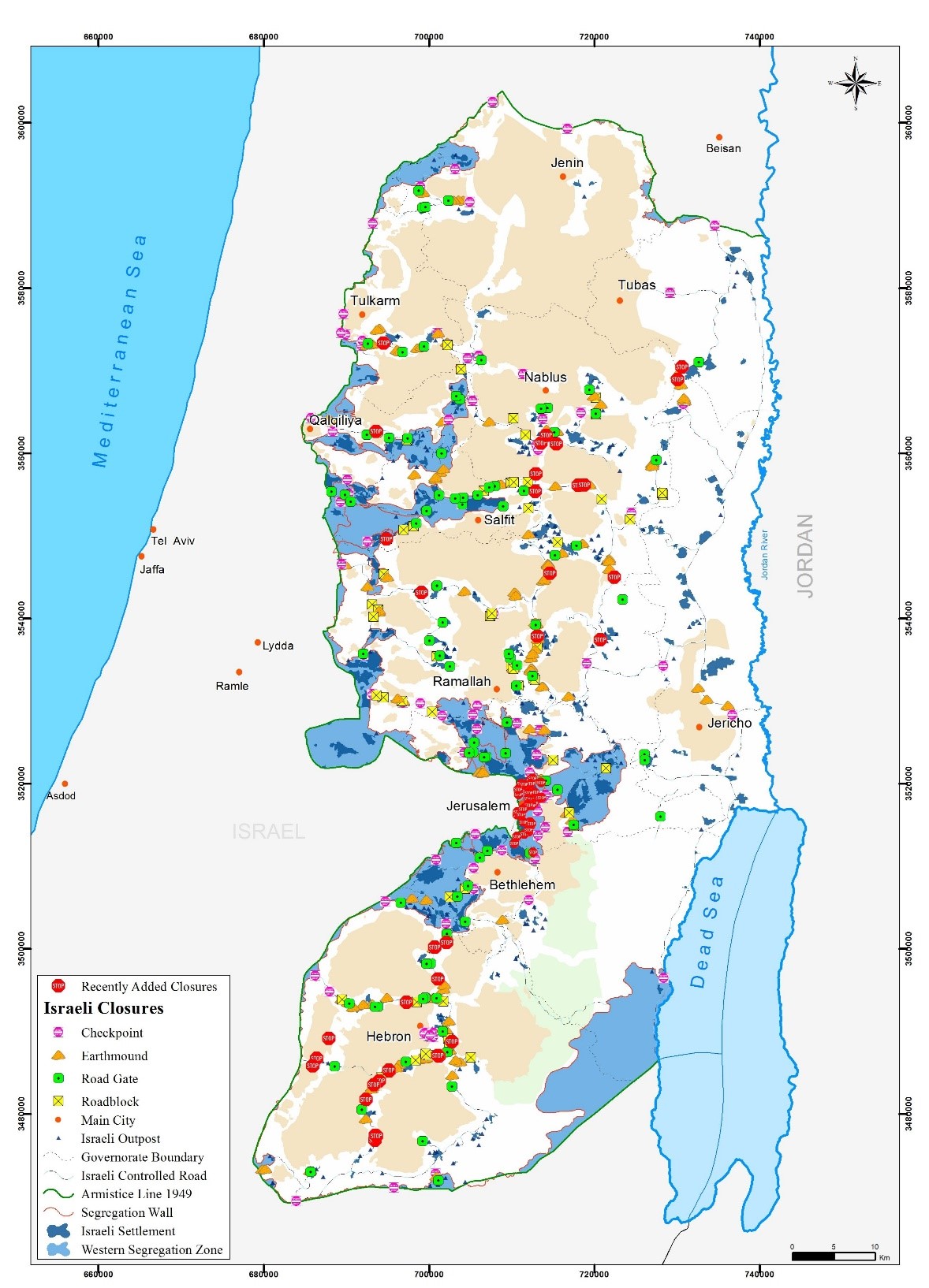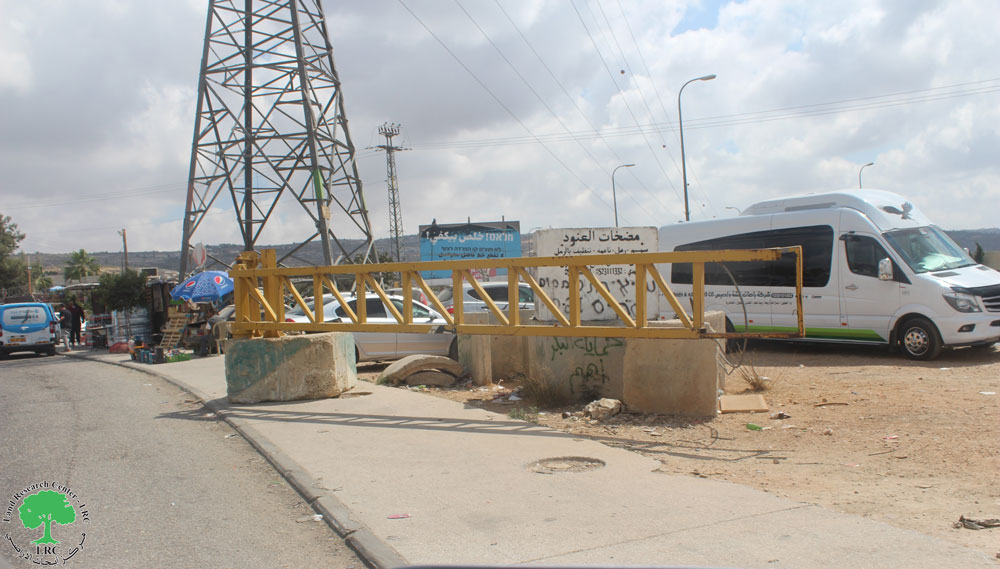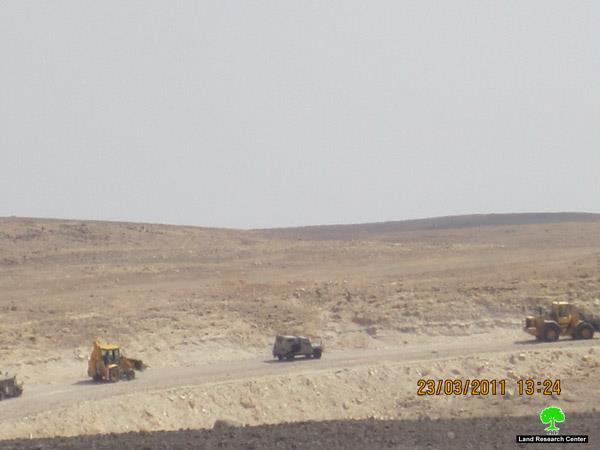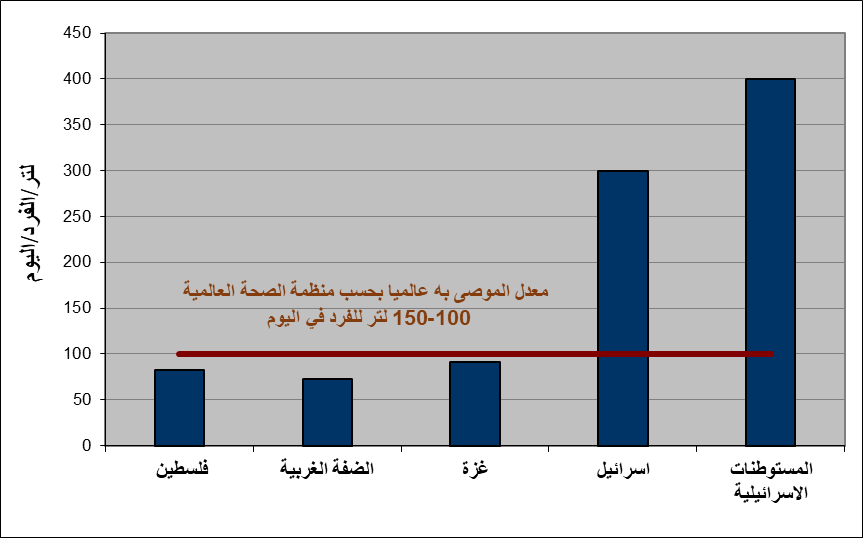On March 26, 2011, the Israeli occupation Army set up two military flying checkpoints south of Jenin governorate, north of the West Bank. The citizens of Jenin said that the checkpoints were positioned in two areas; the first checkpoint was situated on the Nablus – Jenin Street, near by Al Mansoura village, and the second checkpoint on the crossroad between Qabatya and Sanour villages, in Al Jarba area. On both checkpoints, the Israeli Occupation Army had Palestinian vehicles inspected and stopped for hours. Map 1, shows the location of the new flying checkpoints in Jenin District.
Map I: New Israeli flying checkpoints
Source: GIS Unit / ARIJ 2011
The flying checkpoints are typically setup by Israeli Border police or the Israeli Occupation Army; these checkpoints can stand for several hours or several days. The main target for these checkpoints is to control and restrict the Palestinians’ movement and life, and sometimes is used to detain Palestinians.
The flying checkpoint is one of several types of obstacles existing all over the occupied West Bank territory. Table 1 below shows the different types of obstacles in the West Bank
|
Table I: different types of obstacles in the West Bank July 2010
|
|
No.
|
Checkpoint type
|
Number
|
|
1.
|
Permanent Checkpoint
|
72
|
|
2.
|
Partial Checkpoint
|
26
|
|
3.
|
Roadblock
|
94
|
|
4.
|
Earth mound
|
163
|
|
5.
|
Barrier Gate
|
113
|
|
6.
|
Road Gate
|
94
|
|
7.
|
Observation Tower
|
71
|
|
8.
|
Hebron old city (H2) Barriers
|
78
|
|
9.
|
Total
|
711
|
|
Source: GIS unit / ARIJ 2010
|
The Israeli government states that the system is designed to protect Israeli citizens from what it calls “Palestinian terrorist attacks”. However, if Israel intended the Wall for that so called purpose, it should have drawn the route and built the Wall on the internationally recognized 1949 Armistice Line but the facts on the ground say otherwise as the Israeli intended to build parts of the Wall inside the West Bank territory; in some areas as deep as 23 km from the 1949 Armistice Line.
Furthermore, Israel meant from the Wall to grab as much Palestinian lands as possible and set it behind the Wall within what is called the western segregation zone or as the Israelis call it the “seam zone”. Moreover, the Wall and the Israeli devised closure system has divided Palestinian communities from their land and one another and restricted Palestinian access to health and education services, places of work and sites of religious worship.
The restrictions on movement that was imposed by Israel since the Second Intifada in the year 2000, was a main reason for the degradation of the Palestinian economy, and the inflation of unemployment and poverty in the Palestinian territories, mainly in the West Bank. Due to the closure of the West Bank, which was implanted by The Israeli Occupation Army in the Second Intifada, tens of thousands of Palestinians lost employment in Israel, when before the closure system was put into effect more than 110,000 Palestinians workers were employed in Israel, and after the closure, the numbers of Palestinians employed dropped dramatically, since the number of access Permits issued were limited.
Due to the new bitter facts forced upon Palestinians, the checkpoints and restrictions within the West Bank, many difficulties and complexities were imposed on the Palestinians daily life as travel restrictions became stricter day in day out, and it went beyond that with the deterioration of the business sector, loss of thousands of jobs. Furthermore, transportation fees has increased dramatically with the Israeli closure system as Palestinians had to resort to new routes to travel on; longer in distance and in time.
On this regard, the Palestinian Agricultural sector and tourism sector suffered the most as Palestinian farmers had less access to their land, in addition to the fact that much of their cultivated land became target of the Wall and consequently, the Israeli Army and the Israeli settlers who in their turn have escalated their attacks against Palestinian farmers and fields burning thousands of dunums every year.
Tourism sector have also suffered from the Israeli closure system as the Israeli Army restricted and controlled tourists access to Palestinians areas under security pretext, in addition to the Israeli organized campaign to terrorize the tourists planning to visit Palestinian territory with claims of possible kidnaps and for the women harassments and rape.
Conclusion:
The Israeli state and Occupation Army violate the international law articles with the checkpoints (obstacles) it systemize on the lands as it is considered a form of the internationally banned “Collective Punishment” as these obstacles limit and control the freedom of movement, healthcare, and the right to education. Many of these checkpoints witnessed the death of many Palestinians.
Israel has been attempting to force new geographical realities on the ground with the checkpoints, detouring Palestinians routes to new others than their traditional one and this also goes for their living conditions and developments areas. the international community must look and deal with the Israeli checkpoint system in a more firm matter before it become a forced way of life against Palestinians leading only to hate and despair.
The list of Israeli state violation of international law and the 4th Geneva Convention of 1949 by applying the checkpoint system are many but this is just to name couple of them:
- International Covenant on Civil and Political Rights (ICCPR), for the sector of Freedom of movement and travel, Article 12 states: ‘Everyone lawfully within the territory of a State shall, within that territory, have the right to liberty of movement and freedom to choose his residence’.
- United Nations Security Council and General Assembly Resolutions, in UNSCR Resolution 242 it states: ‘The withdrawal of all Israeli armed Army from the territories occupied in the 1967 war’. Yet Israel refuses to apply this resolution, and antagonistically occupies the OPT. As an occupying power, Israel is obliged and committed to International Humanitarian and Human Rights laws.
Prepared by





